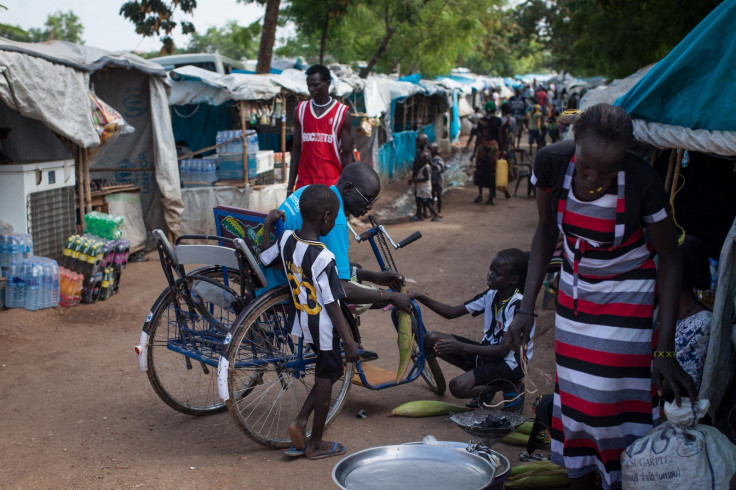South Sudan has highest number of children out of school due to conflict warns Unicef

Conflict-ridden South Sudan has the highest number of children out of school due to the ongoing unrest, Unicef has said. More than half (1.8 million, 51%) of South Sudanese children of primary and lower secondary age are unable to continue education in the world's newest nation.
"Children living in countries affected by conflict have lost their homes, family members, friends, safety and routine," Jo Bourne, Unicef chief of education, said in a statement. "Now, unable to learn even the basic reading and writing skills, they are at risk of losing their futures and missing out on the opportunity to contribute to their economies and societies when they reach adulthood."
According to the agency's statistics, even before the conflict erupted in South Sudan in 2013, at least 1.4 million children were unable to attend school. In the past two years, at least 400,000 children have dropped out of school and 800 educational buildings have been demolished during attacks.
Unicef added that in Niger, 47% of children cannot go to school, while in Sudan that figure is 41% and 40% for Afghanistan.
In December 2015, the agency warned more than one million children in northern Nigeria and neighbouring countries were unable to go to school due to the deadly insurgency carried out by Boko Haram terrorists.
The charity said the number added to the 11 million children who were already unable to attend school in Nigeria, Cameroon, Chad and Niger before the insurgency erupted in 2009.
How the conflict started
War in South Sudan erupted when President Salva Kiir, from the Dinka ethnic group, accused then vice-president Riek Machar, from the Nuer group, of plotting a coup. The accusations sparked violence in the country, where factions loyal to Kiir and Machar engaged in tit-for-tat violence that resulted in the death of thousands.
Both sides have been accused of committing war crimes and crimes against humanity, including rape, torture and the use of child soldiers.
Warring sides have signed several ceasefires, all of which were later broken causing new upsurges of violence. The latest peace deal was reached in the capital Juba in August 2015 after Kiir initially refused to accommodate some of the rebels' request. However, both groups accused each other of violating the terms of the deal.
In the latest development in January, Kiir agreed to a power-sharing deal that could pave the way for a transitional government. According to it, the government would have 16 ministerial posts – including education, finance and defence – and Machar's opposition 10, including oil, interior and land. Machar-led Sudan People's Liberation Movement-in-Opposition (SPLM-IO) welcomed the power-sharing proposal, although it said it did not meet all the rebels' demands.
South Sudanese peace partners are also discussing whether to revoke the 28 new states Kiir created in the country in a controversial measure in violation of the August peace deal.
© Copyright IBTimes 2025. All rights reserved.






















